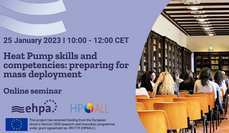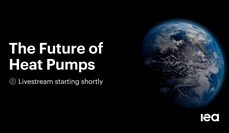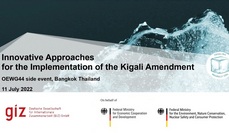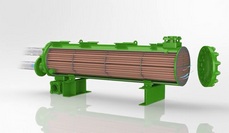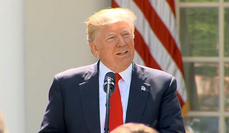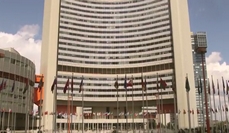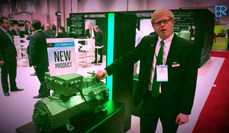Earth’s protective layer is healing
There’s good news to report about the environment. The Earth’s ozone is set to fully recover within the next four decades. A new United Nations report indicates efforts to reduce chemicals that eat into that protective layer of Earth’s atmosphere are paying off.
Heat pump skills and competencies: preparing for mass deployment
On the European year of skills, this event represented a very timely opportunity to discuss the importance of upskilling in the heat pump sector, being the shortage of skilled workers one of the main barriers to the roll out of heat pumps.
The future of heat pumps
Europe have the deep global energy crisis. Among the host of measures countries are taking in response to the crisis, heat pumps are one of the most important long-term solutions widely available today to reduce natural gas use for heating, improve energy security, keep consumers’ energy bills affordable, and make progress on reducing emissions.
What we can learn from a healing Ozone layer
On the 35th anniversary of the Montreal Protocol, it is fitting that you have returned to the city where it all began. Congratulations to all Parties and others involved for carrying out a repair job on a planetary scale. The ozone layer is now healing. Your work has delivered so many benefits, by both protecting the planet from UV radiation and slowing climate change.
50 years of UNEP
The United Nations Environment Programme (UNEP) is celebrating its 50th anniversary in 2022. Founded in 1972 following the landmark UN Conference on the Human Environment, UNEP was conceived to monitor the state of the environment, inform policy making with science and coordinate responses to the world’s environmental challenges.
Innovative Approaches for the Implementation of the Kigali Amendment - OEWG44 side event recording
How to successfully implement the preparation projects for the Kigali Implementation Plans (KIP)? The OEWG44 side event organized by GIZ, presented and discussed helpful tools and concepts.
BITZER water-cooled condensers: when efficiency meets reliability
Like the compressor, a condenser is an essential component of any refrigeration system. In this video we show you how BITZER water-cooled condensers work.
President Trump withdraws US from Paris climate change agreement
The decision fulfills a key promise Trump made on the campaign trail and overturns a major accomplishment by his predecessor, Barack Obama.
Promoting climate friendly ways to cool down
In countries with high ambient temperatures, air-conditioning is not a luxury: it is a necessity. In 2013, the project, “Promoting low global warming potential refrigerants for air-conditioning sectors in high ambient temperature countries (PRAHA)” was approved by the Multilateral Fund with UNIDO and UNEP as the implementing agencies.
Bitzer’s new 50 HP compressors make U.S. debut
The ECOLINE+ six-cylinder line cuts costs and lends itself to industrial applications.
Sanden presents SAN2 heat pump water heater
John Miles outlines the benefits of the third-generation SANCO2 heat pump water heater, capable of delivering hot water extremely efficiently.
Emerson positive about CO2
André Patenaude urges end users to adopt natural refrigerants as future-proof solutions in view of the f-gas phase-down taking place in different jurisdictions worldwide.
Spotlight on new Danfoss electrically controlled ejector
Jim Knudsen introduces the CTM multi-ejector (CTM) for boosting the efficiency of CO2 transcritical systems, winner of the Innovation Award at the AHR Expo.
Panasonic launches hydrocarbon freezer
The low-temperature freezers are aimed at the research sector.
Erik Solheim Statement on Paris Agreement entry into force
The Paris Agreement’s entry into force is an historic day – it shows the shift to a greener world is irreversible.
Dorin: CO2 'the refrigerant of the future'
New components are helping to bring CO2 refrigeration systems to warmer climates and heat pumps can broaden the application of this natural refrigerant still further, Giovanni Dorin, the company’s marketing director, told.
28th Meeting of Parties to the Montreal Protocol, Kigali-Rwanda
Kigali, 15 October 2016 — Nearly 200 countries struck a landmark deal today to reduce the emissions of powerful greenhouse gases, hydrofluorocarbons (HFCs), in a move that could prevent up to 0.5 degrees Celsius of global warming by the end of this century.
CAREL: CO2 ‘bigger than ever’ at this year’s Chillventa
CAREL talk through their new control solutions for small-scale CO2 systems and outline their expectations for the future of CO2 as a refrigerant.
SECOP CEO Søholm: HFC phase-down triggering hydrocarbons growth
With global HFC phase-down discussions and the drive for energy efficiency improvements picking up speed, the market for hydrocarbon technology is ripe for growth – particularly in the United States, SECOP CEO Mogens Søholm told at Chillventa 12 October.


